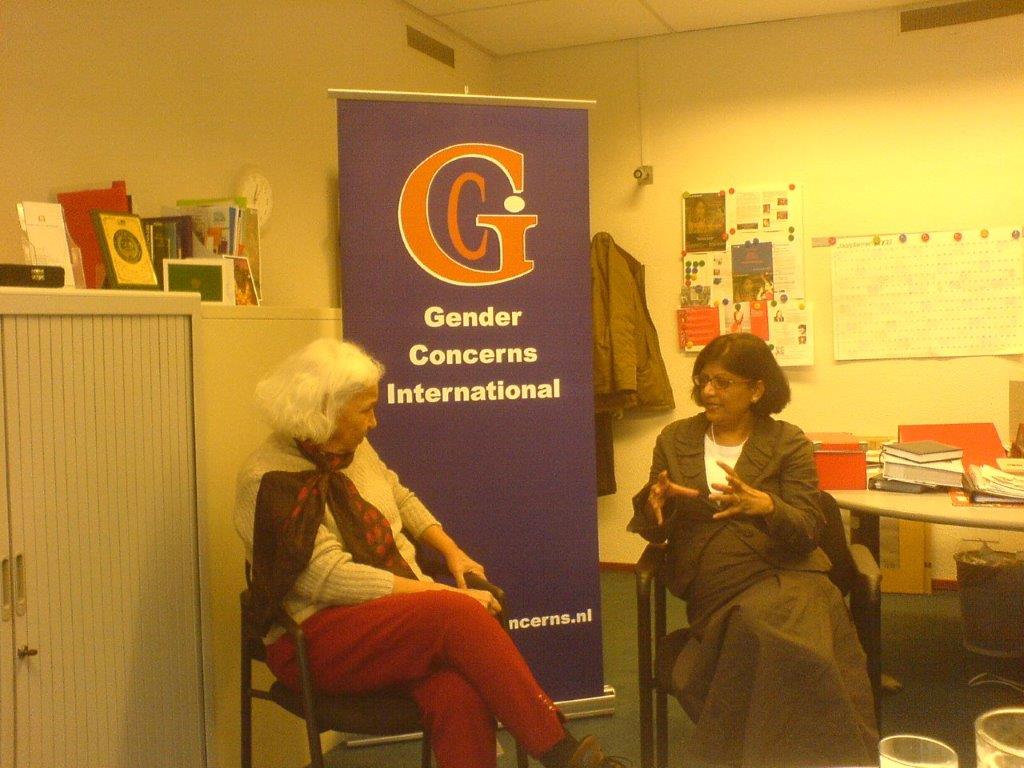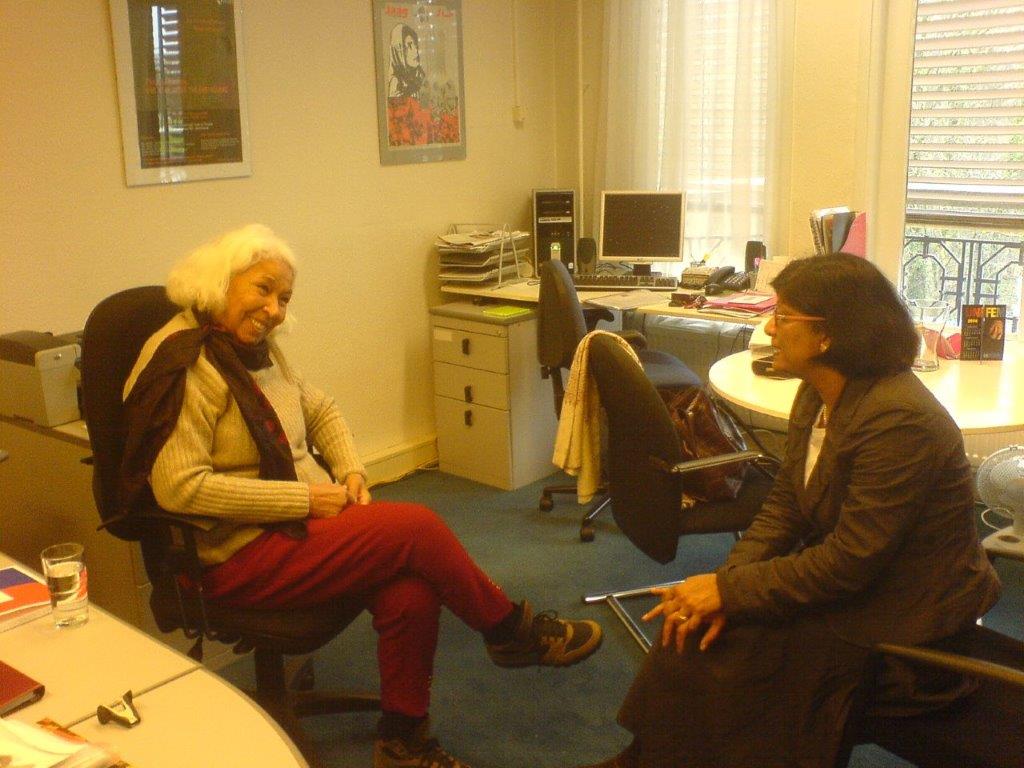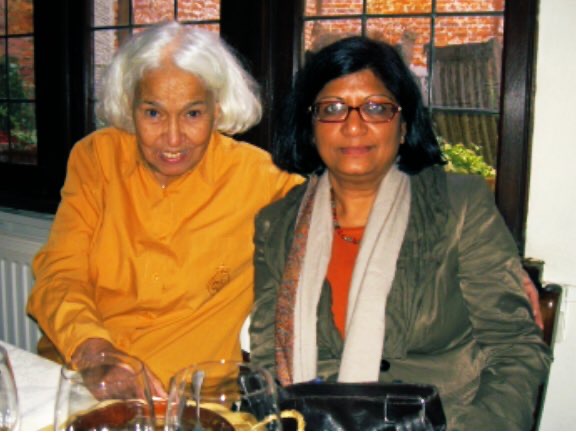Latest updates
Remembering Nawal el Saadawi
March 21, 2023


Today we commemorate the passing of the feminist heart of Cairo, Nawal El Saadawi, who departed from us two years ago. As a legendary writer, physician and feminist activist, she has inspired countless men and women across the globe. We are honoured to have witnessed her fervour, dedication and steadfastness firsthand as she continues to inspire generations to come.
For further information about our work with Nawal El Saadawi, we recommend consulting this link:
Nawal el Saadawi and the Say Yes Now (SYN), Democracy Not Without Women Conference
A Tribute to Nawal el Saadawi
March 22, 2021

Today we mourn.
Nawal El Saadawi has been the feminist heart of Cairo. From there her fervour, dedication and steadfastness illuminated inspiration and courage all over the Arab World, already guiding countless men and women across the globe, and surely will for generations to come.
A fantastic writer and emblem of the struggle for women’s rights in the Arab world, Nawal was fighting for changes for most of her adult life. She was jailed in 1981 as an enemy of the state, and spent 3 years in exile in North Carolina in the 1990s. She was frequently challenged by Islamic authorities, but was able to publish about 50 works of fiction and nonfiction writing. One text was written from prison, on toilet paper with an eyeliner pencil that was smuggled into the cell.
Over the years, Gender Concerns International was able to work a lot with Nawal El Saadawi. Facilitating her engagements in the Netherlands and in Belgium was an immense pleasure, and together we organized an international conference in Cairo. It was an honour to be able to support her when she became the presidential candidate against Mubarak during elections in Egypt in 2005.
It is a tragic day and hard to believe that her journey has ended. I offer my deepest condolences to her daughter and son, and also to all those who looked up to and worked closely with her.
For further information about the work and life of Nawal El Saadawi, we recommend consulting the following links.
Nawal el Saadawi and the Say Yes Now (SYN), Democracy Not Without Women Conference
Nawal El Saadawi, trailblazing Egyptian writer, dies aged 89 (The Guardian)
The Books of Nawal El Saadawi (The New Yorker)
End Electoral Violence Against Women: Call for Support
November 25, 2020

On this International Day for the Elimination of Violence Against Women, Gender Concerns International stands in solidarity with all of those who are addressing the issue of violence against women across the globe and supports the campaign Orange the World: #16 Days of Activism.
Today we reaffirm our commitment to draw attention to Electoral Violence, a least spoken form of violence against women. Electoral violence is associated with democratic electoral processes and often ignored by Election Management Bodies and Domestic and International Election Observers.
Women`s participation in election as voters, campaigners, candidates and managers is often confronted by harassment, intimidation, defamation, and physical abuse. Violence is used as a tool for forced resignations of female candidates and in the assassinations of women politicians.
Despite severe consequences of electoral violence that impacts the scope of women`s political participation, so far very narrow attention has been drawn to this issue. Since last 16 years Gender Concerns International has been engaged in addressing violence against women in pre and post-election period.
In 2005, as a supporter to the candidacy of Nawal Saadawi, Egypt`s first female presidential candidate against Mubarak, organisation highlighted the female candidacy factor as an easy target to be eliminated from the election-race through defaming narratives and verbal harassment campaigns.
Gender Concerns International through its Gender Election Observation Missions (GEOM), program observed various elections in countries including Pakistan, Tunisia, Libya, Morocco, Myanmar and the Netherlands, promoting electoral gender parity. Addressing electoral violence against women remains a core focus of GEOM tool.
Today, Gender Concerns International reaffirms its commitment to continue drawing attention to electoral violence and welcome the opportunity to work closely with those who wish to come forward against gender-based electoral violence. GBV-electoral, says director, Sabra Bano,
Urging attention of international community by calling upon UNDP and UN Women to support efforts against the least spoken but very commonly prevailed violence that poses challenges to our joint support for democracy and SDGs 2030.
Egyptian Parliament finally awards Women Inheritance Rights by Law
December 14, 2017
After over a year’s process on amending the 1943 Inheritance law, the Egyptian Parliament passed a law guaranteeing women’s right to inheritance on the 5th December 2017.[1] Women have for long been deprived of the right to inheritance due to patriarchal cultural norms and traditions, especially in the Upper Egypt. Gender Concerns appraises the country’s new legislative measure as a step towards realizing the ‘Egyptian Woman 2030” strategy and the UN SDGs.
[1] Ayah Aman, ‘Egyptian Women Get Inheritance Rights’ (Al-Monitor, 12th Dec 2017), https://www.al-monitor.com/pulse/originals/2017/12/egypt-law-women-inheritance-rights.html?platform=hootsuite accessed 14th Dec 2017
Egypt criminalises sexual harrassment
June 13, 2014
On the 6 June 2014, the Egyptian government issued a decree that categorized for the first time sexual harassment as a crime, punishable by up to five years of imprisonment and a fine worth between $300 and $7000, plus the government increased the sentence for repeat offenders or employers. The decree amended current laws on abuse which vaguely referred to ‘indecent assault’.
This conduct is a welcomed move from the Egyptian government considering the fact that sexual violence has never been criminalized before and that sexual violence has increased during the past three years of disorder and democratic transition following the 2011 uprising that ousted Hosni Mubarak.
In 2013, a report by the United Nations Entity for Gender Equality and the Empowerment of Women, found that more than 99% of hundreds of women had experienced sexual harassment.
The decree is seen as a first step towards ending a chronic problem, but it remained to be seen if it would be actually enforced by the police. Indeed, Rare are the occasions where sexual harassers have been found guilty and the most of times it happened on vaguely charges of physical assault.
In fact, the victims are often blamed for their experience and behaviour, due to a patriarchal conservative culture and to gender stereotypes in general, which make difficult for victims to fill charges.
On Sunday 9 June 2014, five mob sex assaults were reported in Cairo's Tahrir Square during celebrations of Egypt's presidential inauguration.
The struggle against sexual violence thereby not only depends on legal enforcement but also depends on the societal changes itself to put an end to gender disparity. This requires for instance to increase the number of women ruling high positions in assemblies or justice, to develop women’s rights and support the women’s will to work and to be part of the society. Indeed it is also a fact that the majority of the victims of harassment are students and female worker.
Following the decree, the government must organize the judicial process, and introduce another broader law to outline all other forms of sexual crime to stop sexual violence against women.